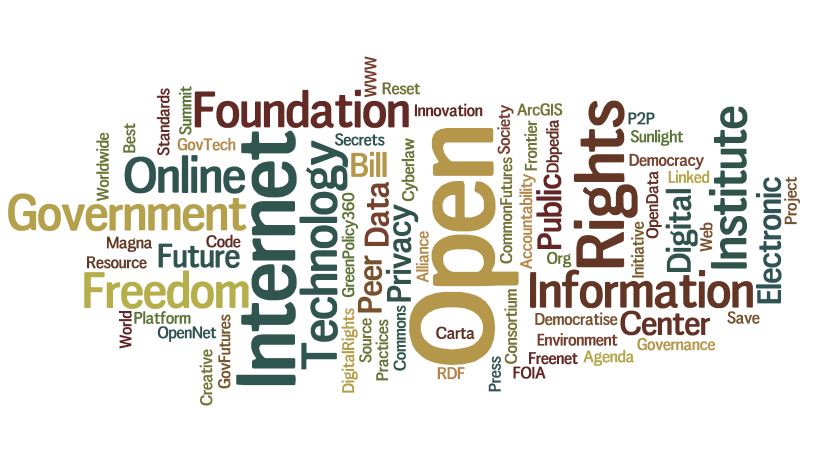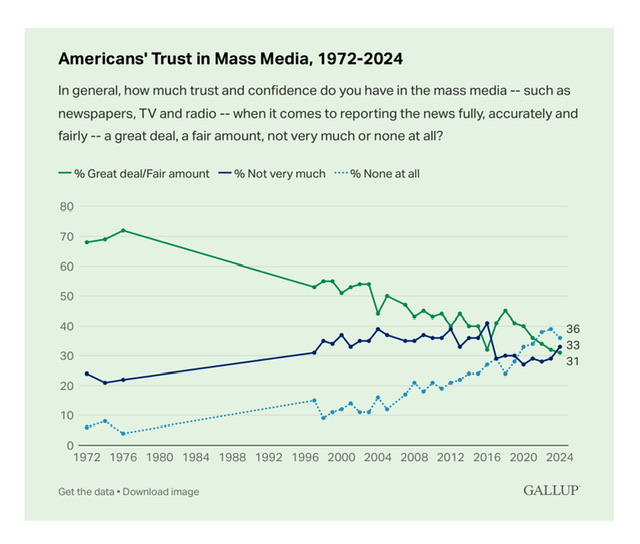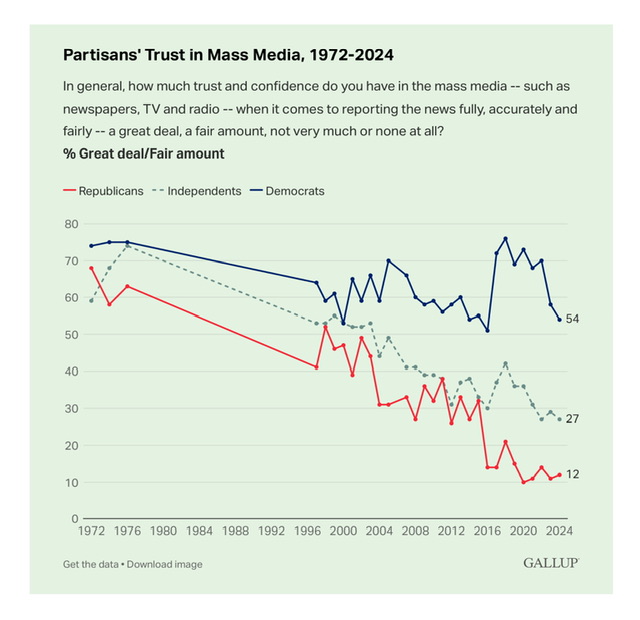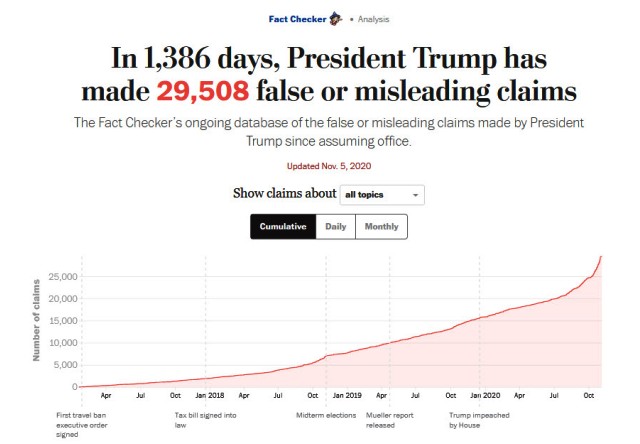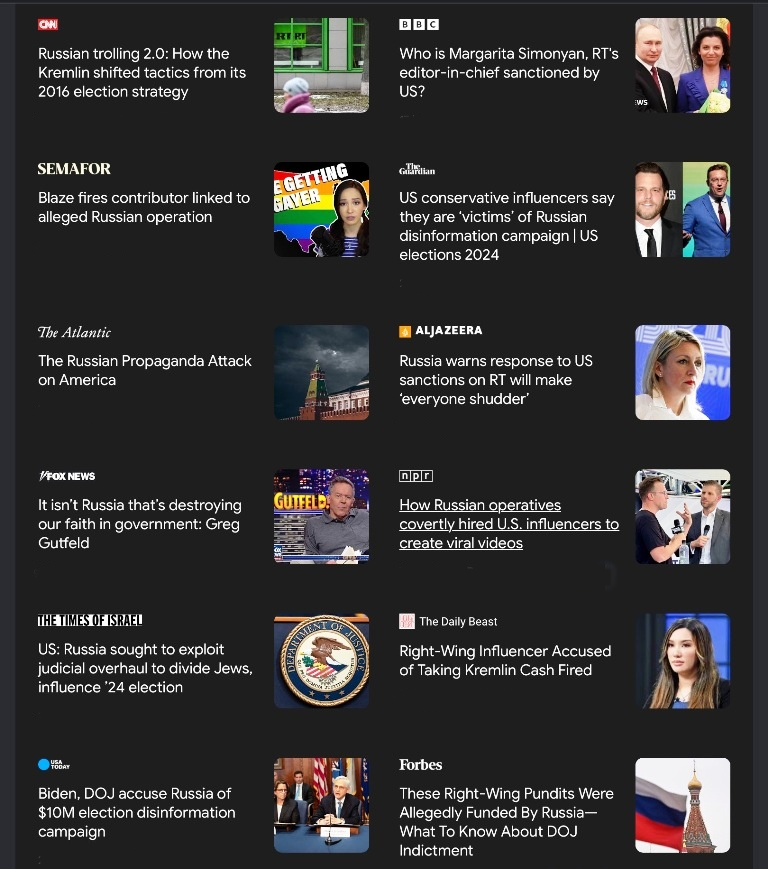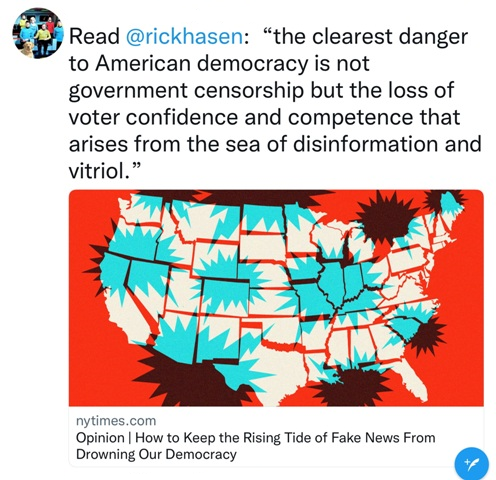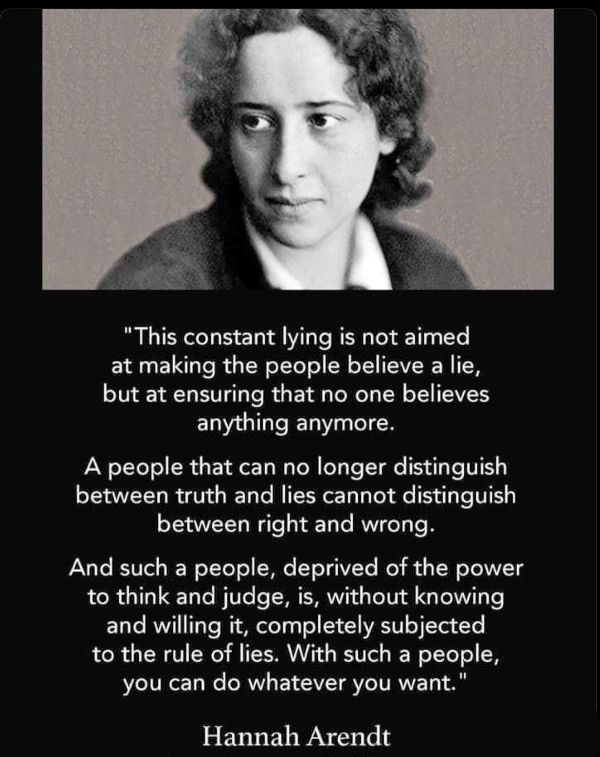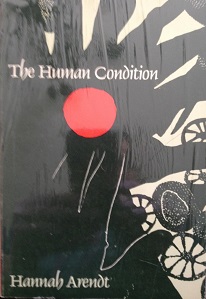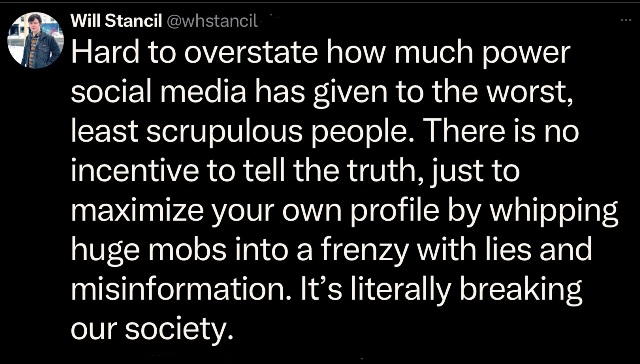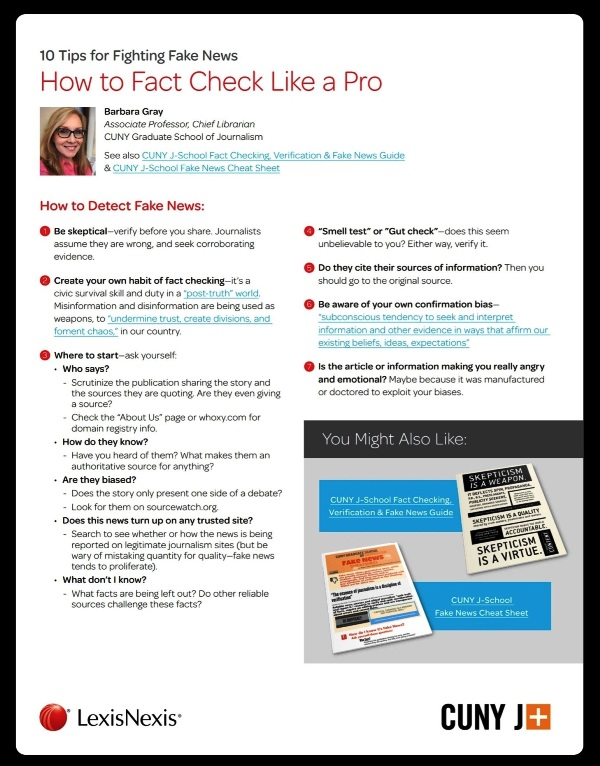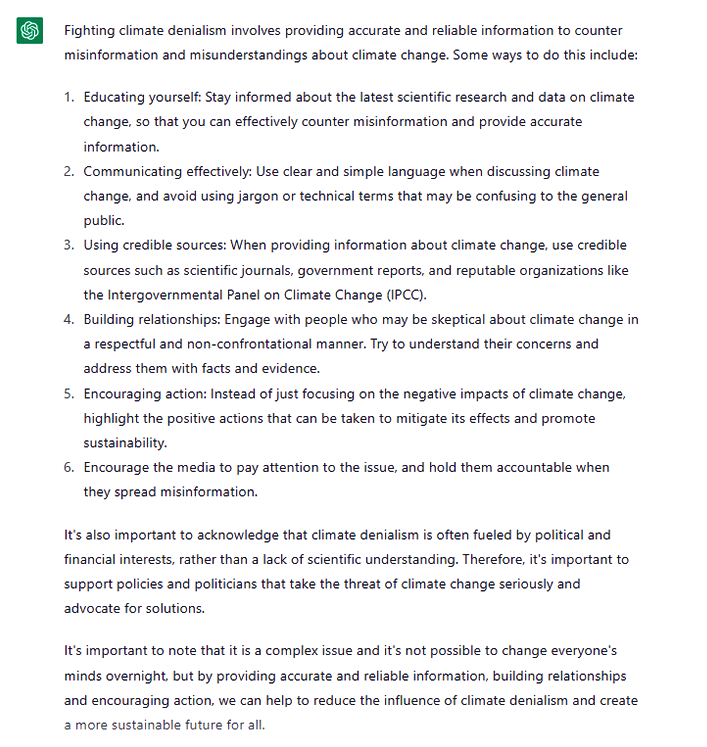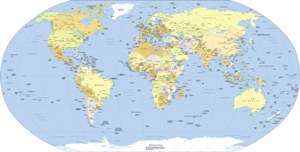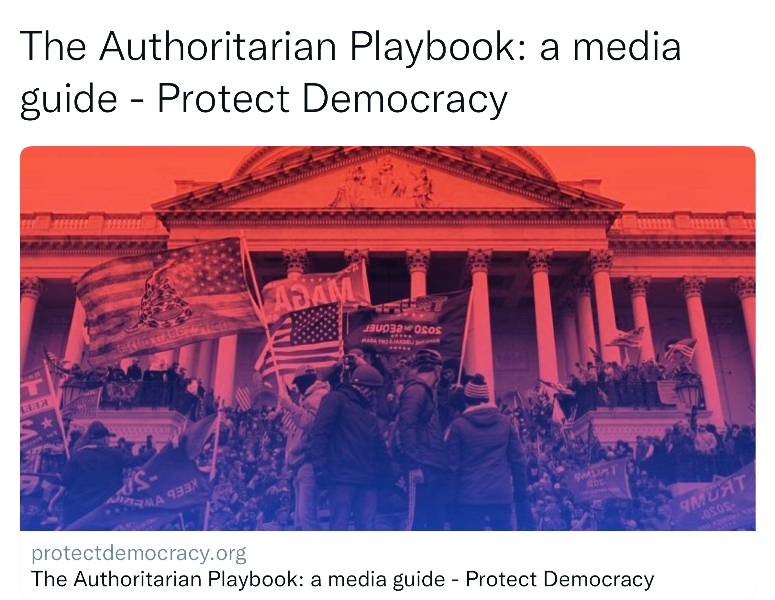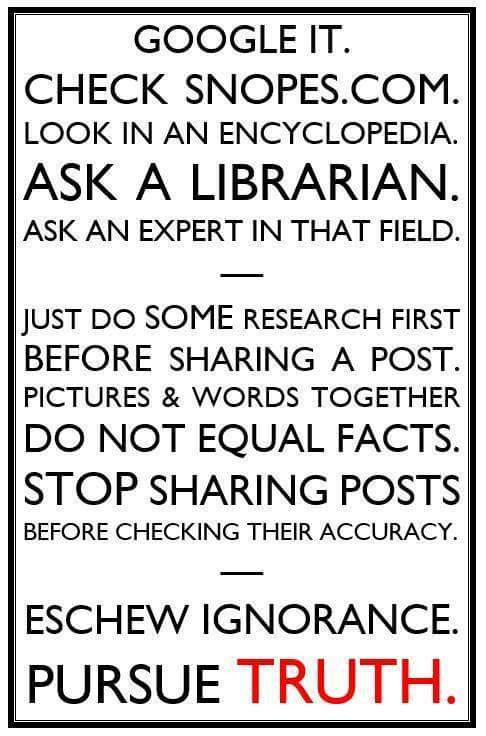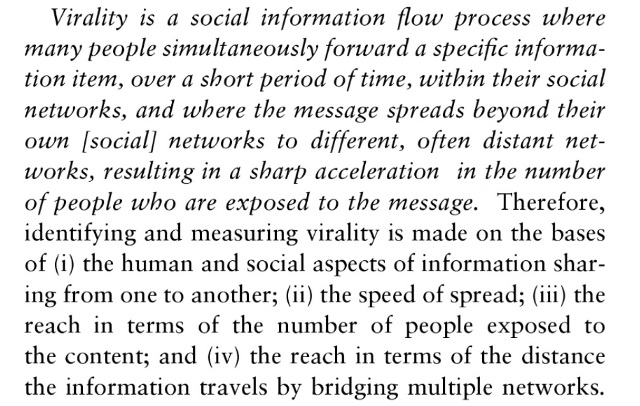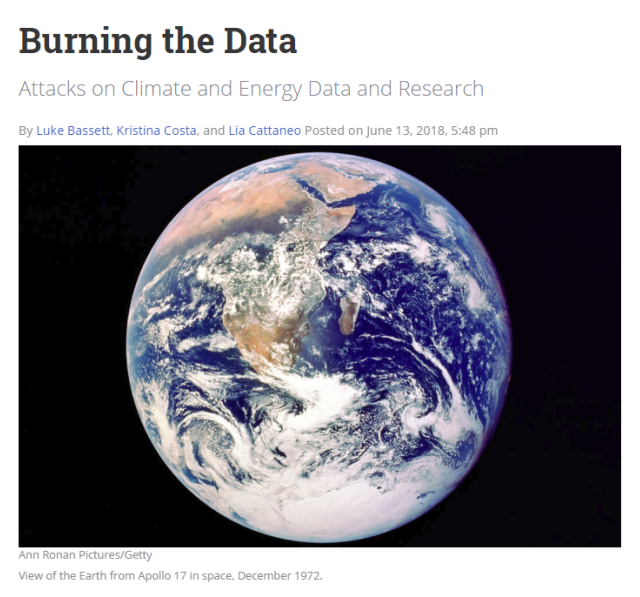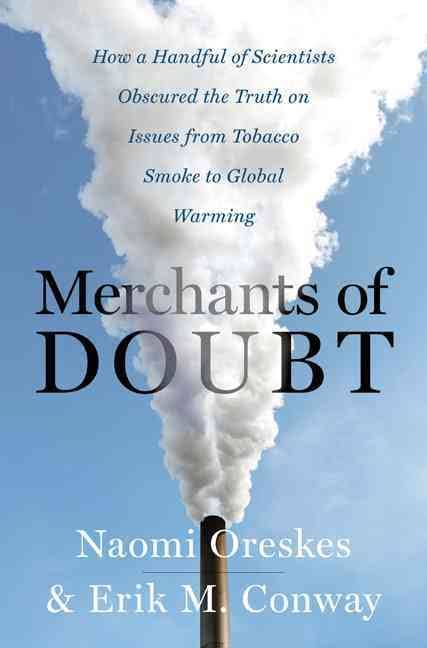Disinformation - Online - Dangerous: Difference between revisions
Siterunner (talk | contribs) No edit summary |
Siterunner (talk | contribs) No edit summary |
||
| Line 302: | Line 302: | ||
From 2001-2010, he served as founding co-editor of the quarterly peer-reviewed publication, Election Law Journal. He is the author of over 100 articles on election law issues, published in numerous journals including the Harvard Law Review, Stanford Law Review, and Supreme Court Review. | From 2001-2010, he served as founding co-editor of the quarterly peer-reviewed publication, Election Law Journal. He is the author of over 100 articles on election law issues, published in numerous journals including the Harvard Law Review, Stanford Law Review, and Supreme Court Review. | ||
| Line 371: | Line 370: | ||
''A Political Philosopher Gets Real'' | |||
At GreenPolicy360 we often speak of action following considered thought. We have held forth with words such as a "values-based politics" and a "politics of values". GreenPolicy360's founder-siterunner would also point to inspirations that led to this path. In Hannah Arendt's 1950s book, [https://en.wikipedia.org/wiki/The_Human_Condition '''The Human Condition'''], Hannah speaks | At GreenPolicy360 we often speak of action following considered thought. We have held forth with words such as a "values-based politics" and a "politics of values". GreenPolicy360's founder-siterunner would also point to inspirations that led to this path. In Hannah Arendt's 1950s book, [https://en.wikipedia.org/wiki/The_Human_Condition '''The Human Condition'''], Hannah speaks of creating new beginnings, 'natality', creativity imbued in each of us, in our humanity, to face challenges that come with life.... and to move beyond hope to imagine new, productive, life-supporting solutions. | ||
At GreenPolicy360 we say -- Think, contemplate, then act to make a difference, a positive difference. At the top of each of our site's pages is a flowing thought -- | At GreenPolicy360 we say -- 'Think, contemplate, then act to make a difference, a positive difference'. At the top of each of our site's pages is a flowing thought -- | ||
''Each of us can make a positive difference by stepping up & doing our best'' | ''Each of us can make a positive difference by stepping up & doing our best'' | ||
Latest revision as of 14:44, 13 December 2024
The Net is Global, so are Internet psyops -- trolls, bots, election interference and anti-Democracy influencers
Democracy Challenged
- With the Advent of the Internet Comes Information Technology and Disruption
Opinion
As Americans Trust in 'the Media' Drops, a Right-Wing Media Rises
Today, the right-wing media—Fox News (and the entire News Corp.), Newsmax, One America News Network, the Sinclair network of radio and TV stations and newspapers, iHeart Media (formerly Clear Channel), the Bott Radio Network (Christian radio), Elon Musk’s X, the huge podcasts like Joe Rogan’s, and much more—sets the news agenda in this country. And they fed their audiences a diet of slanted and distorted information that made it possible for Trump to win.
The right-wing media sets the news agenda in this country. Not The New York Times. Not The Washington Post (which bent over backwards to exert no influence when Jeff Bezos pulled the paper’s Harris endorsement). Not CBS, NBC, and ABC. The agenda is set by all the outlets I listed in the above paragraph. Even the mighty New York Times follows in its wake, aping the tone they set disturbingly often.
-- Michael Tomasky, November 8, 2024, Quoted in the New Republic
On the Press
Trump Wins, the Press Loses
“I say up front, openly, and proudly, that when I WIN the Presidency of the United States, they and others of the LameStream Media will be thoroughly scrutinized for their knowingly dishonest and corrupt coverage of people, things, and events... They should pay a big price." -- Donald Trump, September 2024
~
October 14, 2024
Via the Washington Post
Trump wages campaign against real-time fact checking
Trump goes to war against real-time fact checks
The moves are the latest example of Trump’s long-held resistance to being called to account for his falsehoods
The moves are the latest example of Trump’s long-held resistance to being called to account for his falsehoods, which have formed the bedrock of his political message for years. Just in recent weeks, for example, Trump has seized on fabricated tales of migrants eating pets and Venezuelan gangs overtaking cities in pushing his anti-immigration message as he seeks a second term in office.
Lucas Graves, a journalism and mass communications professor at the University of Wisconsin at Madison, said that publicly chafing at fact-checking has become a form of tribalism among some Republicans.
"Within the political establishment on the right, it is now considered quite legitimate — and quite legitimate to say publicly and openly — that you disapprove of fact-checking,” said Lucas, author of “Deciding What’s True: The Rise of Political Fact-Checking in American Journalism. “Precisely because of Trump’s unusual relationship with the truth — even for a politician — it’s hardly surprising that he would object to it so volubly and so forcefully.”
The Washington Post Fact Checker team tallied that by the end of Trump’s presidency, he had made 30,573 false or misleading claims — an average of about 21 false, erroneous or misleading claims a day...
Facing a Tide of Dis-info and Mis-info
A President and Legacy of Dis- and Mis-information
At GreenPolicy360 we continue to advocate for science and facts. Fact checking and fact finding increasingly have grown in importance as social media platforms (Facebook, Twitter, etc) can exponentially multiply falsehoods and untruths.
In the era of the Internet, politics is taking on new powers to reach, engage, interact with, convert and motivate targeted audiences with calls to action.
Fact checking is essential in a fast changing and evolving Internet ....
Facts are essential for a functional, credible democratic government ....
Washington Post
By the end of his term, Trump had accumulated 30,573 untruths during his presidency — averaging about 21 erroneous claims a day.
Trump made 30,573 false or misleading claims as president. Nearly half came in his final year.
○
September 10, 2024
Fact-checking Kamala Harris and Donald Trump's 1st presidential debate
Opinion Via GreenPolicy360:
The US presidential campaign debate between Kamala Harris and Donald Trump and produced by ABC News on September 10, 2024. Some 67 million watched via broadcast stations and additional millions of viewers watched on PBS and online streaming including ABC News Live, Disney+, Hulu, CBS News 24/7, CBSNews.com, and Paramount+.
One striking element of the televised production was *live fact checking* provided by debate moderators David Muir and Linsey Davis.
Many readers, followers and sharers of the GreenPolicy360 network also have seen our ongoing fact checking coverage and advocacy for increasing the importance given to facts in an era of political dis- and mis-information.
GreenPolicy360 has, as one of our projects, continued for years to share the growth of the work of the Poynter Institute with its PolitFact and the International Fact-Checking Network, beginning in St. Petersburg, Florida. The independent journalism of Poynter and its educational resources that have been made available throughout the US and nations globally to advance democratic institutions are key to an effective free press.
The September 10th Harris-Trump debate benefited in substance by having fact checkers from various news organization using their own fact-checking guidelines to assess and report on the statements the candidates made.
We have gone so far now as to recommend a fact-checking app that can utilize AI technology to transcribe candidates statements and via an onscreen scrolling window provide immediate factual analysis.
The business of fact checking has advanced greatly in a period of approximately ten years since its introduction (see the reports tracking this fact-checking progress as documented at GreenPolicy360). The importance of facts in democracies, as policies are debated and political issues assessed 'on the merits' or not, is a subject for everyday consideration.
We speak of the "3Ds, discussion, debate and decision-making" and facts as a foundation of a working democratic process and living democratic institutions.
Meanwhile...
Disinformation Goes Viral, "They're Eating your dogs and cats!"
○
September 6, 2024
Political Propaganda and Disinformation as Geopolitical Weapons
“The Justice Department has charged two employees of RT, a Russian state-controlled media outlet, in a $10 million scheme to create and distribute content to U.S. audiences with hidden Russian government messaging,” said Attorney General Merrick B. Garland. “The Justice Department will not tolerate attempts by an authoritarian regime to exploit our country’s free exchange of ideas in order to covertly further its own propaganda efforts, and our investigation into this matter remains ongoing.”
“Our approach to combating foreign malign influence is actor-driven, exposing the hidden hand of adversaries pulling strings of influence from behind the curtain," said Deputy Attorney General Lisa Monaco. “As alleged in today’s indictment, Russian state broadcaster RT and its employees, including the charged defendants, co-opted online commentators by funneling them nearly $10 million to pump pro-Russia propaganda and disinformation across social media to U.S. audiences. The Department will not tolerate foreign efforts to illegally manipulate American public opinion by sowing discord and division.”
"The Russian disinformation operations that affected the 2016 United States presidential election are by no means over."
-- Renée DiResta, Author, "Invisible Rulers: The People Who Turn Lies into Reality"
○
August 25, 2024
Now Comes a "PhotoLies" App
It's featured in the new Pixel 9 and it's next-gen tech. It's a smartphone photo 'enhancement'.
Let's call it -- "PhotoLies" because it's AI lies for your eyes.
The Verge has got the story...
No One’s Ready for This
A staged scene with movie effects, a digital photo manipulation, or more recently, a deepfake — these were potential deceptions to take into account, but they were outliers in the realm of possibility. It took specialized knowledge and specialized tools to sabotage the intuitive trust in a photograph. Fake was the exception, not the rule. ...
(R)ecently Donald Trump falsely claimed that a photo of a well-attended Kamala Harris rally was AI-generated — a claim that was only possible to make because people were able to believe it.
Even before AI, those of us in the media had been working in a defensive crouch, scrutinizing the details and provenance of every image, vetting for misleading context or photo manipulation. After all, every major news event comes with an onslaught of misinformation. But the incoming paradigm shift implicates something much more fundamental than the constant grind of suspicion that is sometimes called digital literacy.
Google claims the Pixel 9 will not be an unfettered bullshit factory but is thin on substantive assurances. “We design our Generative AI tools to respect the intent of user prompts and that means they may create content that may offend when instructed by the user to do so,” Alex Moriconi, Google communications manager, told The Verge in an email.
“That said, it’s not anything goes. We have clear policies and Terms of Service on what kinds of content we allow and don’t allow, and build guardrails to prevent abuse. At times, some prompts can challenge these tools’ guardrails and we remain committed to continually enhancing and refining the safeguards we have in place.”
○
Preparing for the 2024 U.S. Election
Wikimedia Foundation Online Event
Over two decades, GreenPolicy360 has been a MediaWiki user and an original supporter of Wikipedia as it started up here in our home city, St. Petersburg, Florida. Many of the community-based, open-source best practices that form the fact-focused global work of the Wikimedia Foundation are carried forward in GreenPolicy360's MediaWiki and through our global platform are shared across our eOS (eco Operating System). The following online meeting and conference, held via Zoom app, focuses on challenges of today's Disinformation environment as it impacts Democracy. We were invited to join in...
“Legal and Policy Perspectives on How to Combat Disinformation in the 2024 Election”
- Tackling fake news and misinformation
August 12
- Eventbrite.com/e/legal-and-policy-perspectives-on-how-to-combat-disinformation-in-2024-election-cycles
Organized by the Wikimedia Foundation’s Summer 2024 Legal Fellows, this event examines how disinformation techniques and the spread of political polarization through social media have both evolved over time, as well as the efficacy of different policy approaches to combating their potential harms.
The topic is inspired by the Foundation’s decision to emphasize 2024 as a crucial year to combat disinformation in light of the elections held this year in, among other jurisdictions, the United States, India, and the EU.
Moderator:
- Leighanna Mixter, Senior Legal Manager at the Wikimedia Foundation
Panelists:
- Richard Hasen, Endowed Chair in Law, Professor of Political Science, and Director of the 'Safeguarding Democracy Project' at UCLA School of Law
- Emmie Hine, Research Associate, Yale Digital Ethics Center
- Michael Karanicolas, Executive Director of the UCLA Institute for Technology, Law, and Policy
- David Nemer, Associate Professor, University of Virginia
Participants: Online
~
August 13 / Notes from the August 12, 2024 Wikimedia 'Zoom' discussion:
In response to our question about Hannah Arendt speaking of 'loss of a free press' , Richard Hasen discusses his recent book that reveals how disinformation spreads quickly and widely over social media channels as traditional news channels and journalistic standards fall away. The panelists elaborate on the disinformation sphere, financial incentives, ease-of-entry, algorithms, geo-political players, and a political 'Wild West'. In the U.S. the breakdown of the traditional news with the advent of the Internet, and local/national/international shift of advertising revenues from print to digital platforms, has changed the news industry top-to-bottom.
GreenPolicy360 has been following this story for many years and here we take a closer look at the warnings in Professor's Hasen book as a 'we agree' follow on to yesterday's Wikimedia Foundation online meetup -- How to meet these challenges and defend democratic institutions are ongoing...
Rick Hasen refers to his book "Cheap Speech" and explains how disinformation spreads and flourishes with the loss of an independent, active news media.
The Dangers of Cheap Speech
Hasen:
The decline of the traditional media as information intermediaries has transformed—and coarsened—social and political communication, making it easier for misinformation and vitriol to spread. Political campaigns go forward under conditions of voter mistrust and groupthink, increasing the potential for foreign interference and domestic political manipulation through ever more sophisticated technological tools. These dramatic changes raise important questions about the conditions of electoral legitimacy and threaten to shake the foundation of democratic governance.
Cheap speech—speech that is both inexpensive to produce and often of markedly low social value—raises deep concerns whether disseminated on social media, search engines, news cable channels, or otherwise. Platform technology allows politically and morally objectionable manipulation of the information used for voter choice. Viral anonymous speech, spread partly through “bots”—automated programs that communicate directly with users—lowers the accountability costs for sharing false information and manipulated content. It deprives voters of valuable information to judge the credibility of the messages directed at them. Platforms gather an unprecedented amount of intrusive data on people’s backgrounds, interests, and choices, which allows campaigns to “microtarget” advertising, such as by sending one set of messages to older white male voters and another to young African American women. The practice drives profits for the platforms, but it can also fuel polarization and political manipulation. Political operatives may deploy microtargeting for negative messaging intended to depress voter turnout. The platforms’ design may encourage extremism through the algorithms used to offer voters additional, more worrisome content similar to what they or their social media friends and contacts have chosen. Those who can control platform content may help one candidate and hurt another. Platforms influence elections when they make choices about whether to promote or remove content, including false content.
Consider following Richard Hasen online:
Professor Richard L. Hasen of UCLA School of Law is an internationally recognized expert in election law and campaign finance regulation, writing as well in the areas of legislation and statutory interpretation, remedies, and torts. He is co-author of leading casebooks in election law and remedies. Hasen served in 2020 as a CNN Election Law Analyst. He directs UCLA Law’s "Safeguarding Democracy Project".
From 2001-2010, he served as founding co-editor of the quarterly peer-reviewed publication, Election Law Journal. He is the author of over 100 articles on election law issues, published in numerous journals including the Harvard Law Review, Stanford Law Review, and Supreme Court Review.
@GreenPolicy360, In Defense of Democracy
Fact Checking -- Fact Checking, Facts Count
Introduction to the GreenPolicy360 multi-year thread intended to unroll and expose Disinformation/Misinformation (Dis-/Mis-Info)
Combating misinformation: A megastudy of nine interventions designed to reduce the sharing of and belief in false and misleading headlines
“Truthful campaign discussion of public issues is essential to the American form of Government; but wilful misrepresentation of fact has no place either during election time or at any other time.”
-- US President Franklin D. Roosevelt, October 23, 1940
“The result of a consistent and total substitution of lies for factual truth is not that the lie will now be accepted as truth and truth be defamed as a lie, but that the sense by which we take our bearings in the real world – and the category of truth vs falsehood is among the mental means to this end – is being destroyed.”
-- Hannah Arendt, "Truth and Politics", 1967
Many liberals are perplexed that when their fact-checking clearly and definitively shows that a lie is a lie, people seem unconcerned and indifferent. But Arendt understood how propaganda really works. “What convinces masses are not facts, not even invented facts, but only the consistency of the system of which they are presumably a part.”
People who feel that they have been neglected and forgotten yearn for a narrative — even an invented fictional one — that will make sense of the anxiety they are experiencing, and promises some sort of redemption. An authoritarian leader has enormous advantages by exploiting anxieties and creating a fiction that people want to believe. A fictional story that promises to solve one’s problems is much more appealing than facts and “reasonable” arguments.
Arendt was not a doomsayer. To counter her warnings about political dangers, she elaborated a detailed conception of the dignity of politics. Because of our natality, our capacity to act, we can always begin something new. The deepest theme in Arendt is the need to take responsibility for our political lives.
-- Richard J. Bernstein, professor of philosophy at The New School for Social Research, 2018
Arendt spoke about the importance of a free press in an era of mass manipulation of truth and public lying
SJS/GreenPolicy360 Siterunner: In the early 1970s, I set my sights on studying at the famed Graduate Faculty of the New School in New York. I believed the professors competed with those of Harvard, Yale, the University of Massachusetts at Amherst, and NYU. Most important to me as I had studied and taught rhetoric, the 'Art of Argumentation', was that one of the great minds of political history, Hannah Arendt, was teaching at the New School. I signed up for the 'History of Ideas' program. Hannah's books, essays, and lectures became top of mind for me then as a student and over the years have acted as a guide.
When readers of GreenPolicy360 encounter words from Hannah here that I quote I would ask your indulgence and understanding. I believe her experiences from World War II, the depth of her work, her explorations of the mind, and will, need to be recalled and considered.
Listen carefully to Hannah Arendt's wisdom -- and warnings.
* https://www.greenpolicy360.net/w/File:Hannah_Arendt_warns_us.jpg
A Political Philosopher Gets Real
At GreenPolicy360 we often speak of action following considered thought. We have held forth with words such as a "values-based politics" and a "politics of values". GreenPolicy360's founder-siterunner would also point to inspirations that led to this path. In Hannah Arendt's 1950s book, The Human Condition, Hannah speaks of creating new beginnings, 'natality', creativity imbued in each of us, in our humanity, to face challenges that come with life.... and to move beyond hope to imagine new, productive, life-supporting solutions.
At GreenPolicy360 we say -- 'Think, contemplate, then act to make a difference, a positive difference'. At the top of each of our site's pages is a flowing thought --
Each of us can make a positive difference by stepping up & doing our best
"In her 1958 book The Human Condition, Hannah Arendt points to the potential of human action to initiate new beginnings, a capacity she calls natality, as the source of political renewal that could save the modern age from ruin." -- Mavis Louise
Steven Schmidt/GreenPolicy360: Now, we enter a new connected world. No longer the 20th century, here we are in the 21st and everything's moving faster.
In today's world of the "Net" and "Web", algorithms, data gathering, target marketing and manipulation, bot farms, psyop political technology and com warfare, our knowledge and understanding of facts become a defense against disinformation and a support for truthful discussion and accountability. In other words, the 3Ds of democracy we write of -- discussion, debate and decision-making -- are at risk and under attack.
Today all of us, every day, must act to recognize and deal with repeated big lies. In these times, again, the future depends on recognizing truths. Hannah Arendt and those who remind us of the 'origins of totalitarianism', and consequences, are talking to us. Our responsibility is to listen to the lessons of the recent past.
GreenPolicy360: The development of science over the ions is, as the song goes, "a long and winding road" and here we are in the 21st Century still facing ancient themes.
In Europe the "Scientific Revolution" was based on ancient knowledge -- and arguments -- that carried through the "Middle Ages" and led to an "Age of Enlightenment", the "Age of Reason", and the end of "Feudalism" and beginning of "Mercantilism", with "Colonialism", "Capitalism" and "Socialism".
Social and political revolutions across the world in the 1800s brought on conflict and wars that carried into and across the 1900s. Two devastating world wars and the development and a first use of nuclear weapons brought on a new geopolitical reality now threatening civilization and humanity's existence.
The 21st Century reveals new realities. We look out at mixed economies, a heated struggle between democratic and authoritarian governments, and global threats of climate change and all its consequences. GreenPolicy360 and associate Strategic Demands speak of the need for 'New Definitions of Security', local, national, and global to change 21st century approaches, but Information Warfare is ascendent in these times.
GreenPolicy360 is here with an array of democratic ideas and tech-tools to sort it out.
It is our role, all of us as connected citizens who value rights, liberty, freedom, quality of life, opportunity and justice under law, to act to protect democratic institutions. Confronting disinformation is a vital task, a 21st century challenge in a new media era.
Fact Checking and Embedded Links
Privacy on the Net-Online Rights
Strategic Policy-Internet Online Rights
Wikipedia, Wikimedia, MediaWiki, and wiki
○
2024
The Disinfo Beat Heats 'n Boils Over
A Volatile Election Is Intensifying Conspiracy Theories Online
Via the NY Times / July 24, 2024
The emergence of Vice President Kamala Harris as the new Democratic front-runner touched off new paroxysms of disinformation and explicitly hateful comments. More than one in 10 posts mentioning her on X on Sunday included racist or sexist attacks, according to PeakMetrics, which tracks activity online. They included false claims about her race and whether she was ineligible to run for the presidency because she was not a citizen. (She is a citizen, and she is eligible to run.)
The internet has long rewarded vitriol over virtue, but with each passing year and each new crisis, the erosion of compassion, cordiality and common cause online has become the nature of discourse online rather than an unfortunate feature of it.
Most social media platforms profit when outrage and indignation results in more engagement, and ultimately, more advertising revenue. Companies have little incentive to alter the algorithms that allow toxic content to spread, despite calls from political leaders appealing to society’s better angels...
> Users on X, Truth Social, Rumble and Gab have benefited from a series of major events to spread baseless falsehoods as their followers and engagement skyrocket.
○
Throwing Lies Around Can Be Profitable (and Engaging)
- Fighting Disinformation Can Be Costly and Tiring and Isn't Fun 'n Games)
The NY Times has reporters covering the disinfo online beat, so what's that all about?
Fates of nations are at stake and futures are at risk as bad actors attempt to sway voters and turn elections
Read about it. Here's a free, unlocked, no paywall article to assist your understanding of what's going on out there
○
"Political Technology"
- Disinformation Aimed at Democracies
July 7, 2024
The following excerpt from an 'American Letter' column by Heather Cox Richardson begins with election results in the U.K. and France, then turns to the future. Let's tune in...
On Thursday, elections in the United Kingdom saw a landslide victory for the center-left Labour Party for the first time in 14 years. Lauren Frayer and Fatima Al-Kassab of NPR noted that it was the worst defeat for the Conservatives in their almost 200-year history.
There are always many factors that go into any election, but these results at least raise the question of whether western politicians are finding effective ways to counter the techniques of Russian disinformation. France has been flooded with Russian disinformation trying to create divisions in society as Putin seeks to break European support for Ukraine. Russia openly supports Le Pen.
The U.K. also has been similarly flooded with Russian disinformation for years now. Russian trolls lie on social media websites and populate the comments sections of popular websites both to end support for Ukraine and to exploit wedge issues to split people apart.
These efforts were part of what Russian political theorists called “political technology”: the construction of a virtual political reality through modern media. Political theorists developed several techniques in this approach to politics: blackmailing opponents, abusing state power to help favored candidates, sponsoring “double” candidates with names similar to those of opponents in order to confuse voters on the other side and thus open the way for their own candidates, creating false parties to split the opposition, and, finally, creating a false narrative around an election or other event in order to control public debate.
These techniques perverted democracy, turning it from the concept of voters choosing their leaders into the concept of voters rubber-stamping the leaders they had been manipulated into backing.
GreenPolicy360: Among her many contributionThe tools of the Net are being wielded as weapons. At risk, the health, well-being, and future of democratic institutions.
Historian Richardson is revealing the story of U.S. history and struggles of our era.
Another professor, Anne Applebaum, is amplifying the message. Applebaum's new book Autocracy, Inc. is described in stark terms:
Undermining the democratic world
We think we know what an autocratic state looks like: There is an all-powerful leader at the top. He controls the police. The police threaten the people with violence. There are evil collaborators, and maybe some brave dissidents.
But in the 21st century, that bears little resemblance to reality. Nowadays, autocracies are underpinned not by one dictator, but by sophisticated networks composed of kleptocratic financial structures, surveillance technologies, and professional propagandists, all of which operate across multiple regimes, from China to Russia to Iran. Corrupt companies in one country do business with corrupt companies in another. The police in one country can arm and train the police in another, and propagandists share resources and themes, pounding home the same messages about the weakness of democracy and the evil of America.
International condemnation and economic sanctions cannot move the autocrats. Even popular opposition movements, from Venezuela to Hong Kong to Moscow, don’t stand a chance. The members of Autocracy, Inc, aren’t linked by a unifying ideology, like communism, but rather a common desire for power, wealth, and impunity. In this urgent treatise, which evokes George Kennan’s essay calling for “containment” of the Soviet Union, Anne Applebaum calls for the democracies to fundamentally reorient their policies to fight a new kind of threat.
GreenPolicy360: Today's geopolitical struggles are coming into focus. Anne Applebaum and Heather Richardson, Maria Ressa and many others, are revealing the scope and scale, what's at stake and how nations are wielding power. Tomorrow's world is being defined today.
The modern tools of conflict have multiplied with information wars and cyber conflict. Social media has engaged most all of our newly e-connected planet. Disinformation online is ubiquitous. It's purposeful. Be aware, educated, and prepared. Yes, we're supporting democracy, rights, and freedoms. GreenPolicy360 is, with full disclosure, advocating a 'values-based politics'.
○
Teaching How to Tell Facts from Fiction: A Nation's School System Rises to the Challenge
○
Against a Backdrop of the Worldwide Rise of the Internet Comes Worldwide Cyber and Political Power Moves
- Cyber, Digital, Influence Operations, Information Warfare
In a democratic republic citizens have responsibilities to protect rights and defend against attacks on democracy.
Here's how the New York Times in a moment of cyber-concern looked at an upcoming Supreme Court case that would move to define cyber limits and rights...
Given the increasingly evident leanings of the Court, how will the court rule on issues impacting say, foreign interference in US elections?
March 17, 2024 / NYT
Three years after Mr. Trump’s posts about rigged voting machines and stuffed ballot boxes went viral, he and his allies have achieved a stunning reversal of online fortune. Social media platforms now provide fewer checks against the intentional spread of lies about elections.
“The people that benefit from the spread of disinformation have effectively silenced many of the people that would try to call them out,” said Kate Starbird, a professor at the University of Washington whose research on disinformation made her a target of the effort.
It took aim at a patchwork of systems, started in Mr. Trump’s administration, that were intended to protect U.S. democracy from foreign interference. As those systems evolved to address domestic sources of misinformation, federal officials and private researchers began urging social media companies to do more to enforce their policies against harmful content.
That work has led to some of the most important First Amendment cases of the internet age, including one to be argued on Monday at the Supreme Court. That lawsuit, filed by the attorneys general of Missouri and Louisiana, accuses federal officials of colluding with or coercing the platforms to censor content critical of the government. The court’s decision, expected by June, could curtail the government’s latitude in monitoring content online.
The arguments strike at the heart of an unsettled question in modern American political life: In a world of unlimited online communications, in which anyone can reach huge numbers of people with unverified and false information, where is the line between protecting democracy and trampling on the right to free speech?
○
A Presidential Election Year and the News Is Ominous
- Disinformation and Misinformation Are On the Rise
- 'Attack Politics', 'Artificial Intelligence', 'Bots and Cyber Warfare', 'Conspiracies and Click Bait', the Media Landscape is Losing Trust
The increasing numbers of voters susceptible to disinformation is a fact that's coming into view from shadowy origins. The Russian efforts to influence continue to grow, former President Donald Trump and his allies are no apprentices led by artificial intelligence technology is ubiquitous; social media companies have slashed efforts to rein in misinformation on their platforms; and attacks on the work and reputation of academics tracking disinformation have chilled research.
“On one hand, this should feel like January 2020,” said Claire Wardle, co-director of Brown University’s Information Futures Lab, who studies misinformation and elections, referring to the presidential contenders four years ago. “But after a pandemic, an insurrection and a hardening of belief that the election was stolen, as well as congressional investigations into those of us who work in this field, it feels utterly different.”
It's a wild, wild world out there. Few who take jaunts through social media platforms lanscapes of political exclamations, clips, and click bait, troll and bots, strange and extreme, threatening and overt comments can walk away feeling what a wonderful world. Wild is the word.
Are you ready?
A Reminder as the U.S. Enters a Presidential Campaign Year
As a new social media platform pushes out extreme verbiage and a voluminous number of aggressive statements by a former president, who continues to claim he did not lose the 2020 election, and campaign rallies report constant threats and calls for revenge...
Focus on facts - Facts count
* https://greenpolicy360.net/w/Fact_Checking
Washington Post
By the end of his term, Trump had accumulated * 30,573 untruths during his presidency — averaging about 21 erroneous claims a day.
Trump made 30,573 false or misleading claims as president. Nearly half came in his final year.
○
2023
November
'Act local' (in your community), Poynter Institute suggests
- Amid escalating national/international conflicts and crisis, accompanied by dire news and social media attacks
- Bring facts and information missing from the current mix of news and opinion
Nextdoor and Facebook local groups are the main places, but millions also exchange information in local communities on Reddit, WhatsApp and old-fashioned local email listservs.
Journalists need to be in these groups for four reasons: That’s where the readers are. That’s where the misinformation is. That’s where the story ideas are. And that’s how trust gets rebuilt.
Nextdoor now has sites in 330,000 communities, reaching 53 million people. By contrast, the collective audience — print and digital — of all American newspapers is 24.3 million on weekdays, according to the Pew Research Center. That’s right, Nextdoor’s reach is on par, if not greater than, that of America’s newspapers.
Local Facebook groups are likely just as big, if not bigger.
○
October
Fog of War
- Opinion / In association with StrategicDemands.com
Amplified by barrages across global social media landscapes, an online war is accompanying war in the Middle East. The surprise incursion of Hamas forces into Israel, and Israel's mobilization and declaration of war, has grown into a worldwide battle for hearts and minds. In previous wars of the 20th/21st centuries, propaganda was to be expected. This war, following the expansion of the Internet into the everyday lives of billions on Earth, in both the global north and south, east and west, has brought new levels, billions of dollars-rubles-yuan etc. in psyops / dis- and mis-information / skirmishes / e- and bot-attacks / crypto incursions / gaslighting / military communications disruption and targeting / data-gathering by intelligence services and operational actions / monitoring by remote agents (e.g. from private sector satellite services) and a host of related sigint (signals intelligence), elint (electronic intelligence) and humint (human intel ops, online/internet ops)...
The recent Reuters associated "Digital News Report"' on the state of online news media addresses the international range/reach, engagement and power of online influencers. News, contemporary events, ideas, opinions opinions reaching out to hearts and minds, available for every connected life on the planet, begins to bring public facing elements of this new online battlefield into view.
The type of war reporting that has been in evidence in previous wars has radically changed, as has the audience. There are no longer media 'gatekeepers' as they used to be, in control of most all news, opinion, in newspaper/magazine and on broadcast TV channels. As corporate news began to venture out in earnest during the Vietnam war, using reporters in the field with video cameras and broadcasting 'live-on-tape' coverage and wire-service 'as it happened' photography to Americans in the front of their TVs and papers, the world of media became last century techniques. The new century brought the wars of the Middle- and Near-East, often delivered from 'embedded' journalists (with military limiting their embedded coverage) to a larger audience. And with early 2000s roll-out of the internet/connectivity and citizen journalists, then digital smartphones, a network called 24/7/365 became the norm. Ubiquitous coverage and near instant worldwide sharing is here and now, for good and bad.
In the so-called "Global South", arraigned often in counterpoint and often in opposition to former colonial powers of the "Global North", the latest digital communication technologies are being utilized with the results delivering diverse and multi-layered opinions of the military actions of the Israel-Gaza war. The US, Israel and allies are being seen in new ways. The geopolitical conflict of the US and Russia, as well as China are engaged deeply in this struggle for hearts and minds.
The age old axioms about truth getting lost in the "fog of war" holds considerable power now, in these connected times where social and online media is reaching places and influencing minds as never before...
Content creators surge past legacy media
(Intro from the Publisher) This year’s Reuters Institute Digital News Report provides further evidence that, even as much of the news industry globally has struggled in the face of the first waves of the move to a digital, mobile, and platform-dominated media environment, it now faces a much more fundamental change driven by generations who have grown up with and rely almost entirely on various digital media.
Whether or not legacy media feel they have completed their initial digital transformation from print- or broadcast-focused to digitally focused brands with a compelling news website and app, they now face a continual transformation of digital as generations come of age who eschew direct discovery for all but the most appealing brands, have little interest in many conventional news offers oriented towards older generations’ habits, interests, and values, and instead embrace the more participatory, personable, and personalised options offered via platforms, often looking beyond legacy platforms to new entrants (many of whom drive few referrals to news and do not prioritise news).
While there are important differences between countries and within generations, and no single uniform pattern of behaviour and preferences, it is important to underline that we have every reason to expect this to be a one-way change: people’s information needs and interests evolve in the course of their life, but their platform preferences rarely regress. Those born in the 1980s did not suddenly come to prefer landline phones over mobiles when they became parents or bought a house, nor did those born in the 1960s return to black-and-white television when they entered middle age. There are no reasonable grounds for expecting that those born in the 2000s will suddenly come to prefer old-fashioned websites, let alone broadcast and print, simply because they grow older. The public is voting with its attention and money, and – despite the very real reservations over uneven trustworthiness, the risks of harassment and misinformation, and sometimes problematic business and data protection practices – they are overwhelmingly, everywhere, voting for digital media. That is the media environment the public embraces, and the ‘new normal’ where journalists and news media have to carve out their places if they want to connect with the public.
The Digital News Report account for more than half the world’s population...
The increasing number and diversity of markets covered – including 11 in Asia, five in South America, three in Africa and North America, as well as 24 in Europe – have led us to compare fewer data points across the whole sample and to focus on meaningful comparisons across markets that are broadly similar. We’ve provided more detail about differences in polling samples in both the methodolog pages and the relevant country pages...
○
NewsGuard
Browser plugin that rates the credibility of news and information websites <Via Wikipedia>
NewsGuard is a rating system for news and information websites. It is accessible via browser extensions and mobile apps.
NewsGuard Technologies Inc., the company behind the tool, also provides services such as misinformation tracking and brand safety for advertisers, search engines, social media platforms, cybersecurity firms, and government agencies.
According to NewsGuard’s General Manager Matt Skibinski':
"NewsGuard was created as an alternative to the black-box algorithms that decide which news content is promoted and which is not on big tech platforms--and as an alternative to any government censorship of content. We rate publishers using publicly disclosed, apolitical journalistic criteria, and we publish the evidence and rationale behind our assessment of each publisher we rate, along with any comments from the publisher, so that each reader can see and decide for themselves,”
News about NewsGuard --
NewsGuard Report: 74% of X's most viral misinformation posts are from "verified" users
Top Israel/Hamas misinformation spreaders use Elon Musk’s paid “verification”
"Verified" accounts on Elon Musk's X platform spread nearly three-quarters of the 250 most viral posts containing commonly shared misinformation about the Israel-Hamas war, according to a study released yesterday by NewsGuard, a company that has worked with the European Commission on misinformation initiatives.
After buying Twitter nearly a year ago, Musk overhauled the system for doling out blue checkmarks so that anyone who pays $8 a month can be "verified." Accounts verified as being notable and authentic under the pre-Musk system had their checkmarks removed.
- (According to NewsGuard)
- During the first week of the conflict (Oct. 7-Oct. 14), NewsGuard analyzed the 250 most-engaged posts (likes, reposts, replies, and bookmarks) that promoted one of 10 prominent false or unsubstantiated narratives relating to the war, derived from NewsGuard's Misinformation Fingerprints, its proprietary database of prominent false narratives. The results revealed that 186 out of these 250 posts—74 percent—were posted by accounts verified by X. ...
NewsGuard worked with the European Commission on the EU's Code of Practice on Disinformation, a voluntary system that Twitter joined before Musk bought the company. Musk pulled his platform out of the disinformation pact in May 2023. A Code of Practice study conducted for the EU by analytics firm TrustLab found that disinformation is more prevalent on X than on Facebook and other social networks.
NewsGuard, founded in 2018, is also providing data on misinformation to Europe's Joint Research Centre.
European Commissioner for Internal Market Thierry Breton warned Musk last week that X faces penalties under the new Digital Services Act if it doesn't take action to stop the spread of Israel/Hamas disinformation. The EC is investigating X's compliance with the new law and sent similar requests for information to Meta and TikTok.
○
September
E.U. Law Sets the Stage for a Clash Over Disinformation
A new European Union law that could force the world’s social media platforms to do more to fight it — or else face fines of up to 6 percent of a company’s revenue.
The law, the Digital Services Act, is intended to force social media giants to adopt new policies and practices to address accusations that they routinely host — and, through their algorithms, popularize — corrosive content. If the measure is successful, as officials and experts hope, its effects could extend far beyond Europe, changing company policies in the United States and elsewhere.
The law, years of painstaking bureaucracy in the making, reflects a growing alarm in European capitals that the unfettered flow of disinformation online — much of it fueled by Russia and other foreign adversaries — threatens to erode the democratic governance at the core of the European Union’s values.
Europe’s effort sharply contrasts with the fight against disinformation in the United States, which has become mired in political and legal debates over what steps, if any, the government may take in shaping what the platforms allow on their sites...
○
How to Identify and Deal with Disinformation, Manipulated Images, Video, DeepFakes & More
- Generative adversarial network (GAN) trained photographs & More
- Revealing those Bots & More
- https://thefix.media/2023/7/11/ai-tools-to-detect-disinformation-a-selection-for-reporters-and-fact-checkers
- https://en.wikipedia.org/wiki/Generative_adversarial_network
○
Algorithms, Big Data, AI/Artifical Intelligence and More... Looking into Future of Media
Data & Society studies the social implications of data-centric technologies, automation, and AI
Through empirical research and active engagement, our work illuminates the values and decisions that drive these systems — and shows why they must be grounded in equity and human dignity.
○
The News Media Needs to Aim for Facts, not "Performative Neutrality"
- Democracy is at Risk
- Key to Democratic Government: Facts, Knowledge, Education
Via Columbia Journalism Review / April 25
"Objectivity, democracy, and the American mosaic"
We find ourselves in a perilous moment. Democracy is under withering assault. Technological advances have empowered propagandists to profit through discontent and disinformation. A coordinated, fifty-year campaign waged by one of our major political parties to denigrate the media and call objective reality into question has reached its logical conclusion: we occupy a nation in which a sizable portion of the public cannot reliably tell fact from fiction. The rise of a powerful nativist movement has provided a test not only of American multiracial democracy, but also of the institutions sworn to protect it.
... the press had often failed this test by engaging in performative neutrality, paint-by-the-numbers balance, and thoughtless deference to government officials. Too many news organizations were as concerned with projecting impartiality as they were with actually achieving it, prioritizing the perception of their virtue in the minds of a hopelessly polarized audience over actual adherence to journalistic principle.
To this day, news organizations across the country often rely on euphemisms instead of clarity in clear cases of racism (“racially charged,” “racially tinged”) and acts of government violence (“officer-involved shooting”). Such decisions, I wrote, are journalistic failings, but also moral ones: when the weight of the evidence is clear, it is wrong to conceal the truth. Justified as “objectivity,” they are in fact its distortion...
○
Shoshana Zuboff: ‘Privacy has been extinguished. It is now a zombie'
January 30, 2023
Excerpts of Interview in the UK Financial Times
Shoshana Zuboff, a professor emerita at Harvard Business School, published The Age of Surveillance Capitalism in 2019 — a blast about how tech companies had made billions of dollars by sucking up private data. “We thought we were searching Google, but Google was searching us” ...
Today (in January 2023) she’s frustrated that efforts to restrain tech companies are so fragmented. “We have fantastic scholars, researchers, advocates who are focused on privacy, others who are focused on disinformation, others who are focused on the nexus with democracy,” she says, when we meet in London. This “Balkanisation” reduces the ability to pinpoint the “actual source of harm”: people’s data is treated as a costless resource, just as forests and other parts of nature were in centuries past. Zuboff cites data that, in the US, which has no federal privacy law, people have their location exposed 747 times a day. In the EU, which she says has the “best regulation”, it’s 376. “It’s better, but it’s not nearly better enough.”
“It is possible to have surveillance capitalism, and it is possible to have a democracy. It is not possible to have both,” she has written.
“Users have no say”
Individuals realistically cannot opt out by themselves. What we need is a right to sanctuary.
Last year Brussels introduced the Digital Services Act and Digital Markets Act, its most comprehensive tech legislation to date. The UK parliament is currently debating an online safety bill. Zuboff wants these to be stepping stones.
...
(FT) Normally in newspaper interviews, the journalist asks questions, and the interviewee answers them. An interview with Zuboff is different. You ask questions and, more often than not, she responds with first principles — step-by-step explanations of how she believes that surveillance capitalism has taken hold this century.
Zuboff is particular about how her ideas are described, about how things are set up.... She mulls each detail.
This particular mind is, in tech terminology, a feature, not a bug. It enables Zuboff to take the long view.
In 1988, she published In the Age of the Smart Machine, which argued that computers would change companies in a way that previous technologies had not.
She later ran Odyssey, a Harvard Business School education programme to help successful people decide how to spend the later part of their lives. Her opus on surveillance capitalism was her own late-career flourish. It was published when she was 67, after a lightning strike had burnt down her family home in Maine and after the unexpected death of her husband and sometime co-author, the businessman Jim Maxmin. Zuboff argues that tech companies knew that the public would never support their data collection.
“Right from the start, they were understood as things that had to be secret, had to be camouflaged from users, lest they provoke resistance.” She quotes a recent Google executive as saying: “Won’t it creep people out to know how much we are paying attention?”
Today tech companies “are becoming much more reluctant to patent their discoveries, because they don’t want the public to know exactly what they’re doing. They’re no longer in most cases making their own data available to researchers.” So Zuboff sees the need for a regulatory fishing expedition. The EU’s tech laws will create “new cadres of people with new mixes of skills that are going to go inside the corporations. Their brief will be to lift the hood, to understand what’s really going on. One of the huge problems that we have is that most of the information that comes out of the companies is intentionally designed to be misleading. Gaslighting is a rhetorical art form that is genuinely practised by these companies.”
Zuboff rarely uses short answers or plain terminology.
Nonetheless, she is direct about content moderation — companies’ attempts to remove harmful content — which she describes as “quicksand... an utterly losing proposition, designed in fact to keep us occupied as long as possible so that they can keep getting away with what they’re really doing.”
She is more positive about age-appropriate design, where platforms are engineered to minimise harm to children and to collect less data from them.
...
The problem for privacy advocates is that their cause seems to offer too few advantages and too many drawbacks. For most European citizens, the biggest impact of privacy legislation is annoying cookies pop-ups...
(S)he admits regulation is hindered “because we can’t get inside [tech companies] to know what’s really going on. We’re regulating with blinders on... We don’t understand our adversary well enough.”
Zuboff insists that her attack is not against technology itself, but the economic logic that underpins it — “theft”. She holds out the possibility that we could use data and prediction for the common good. The counterargument is that there are basic trade-offs.
Tech services, whether for predicting text answers or the fastest driving routes, can only work by accumulating data and reducing our privacy.
(What does she think) of Musk’s ownership of Twitter... “We’ve got politicians, lawmakers, elected officials, as well as the entire citizenry, focused on one man and asking the question, ‘what will he do?’ Our political stability, our ability to know what’s true and what false, our health and to some degree our sanity, is challenged on a daily basis depending on which decisions Mr Musk decides to take. I regard this as fundamentally intolerable... These spaces cannot exist solely under corporate control... We’re two decades into the digital era but we have never, as democracies, taken stock of the meaning of these technologies.”
...
“In an information civilisation, our information spaces must exist under public law and be governed by democratic institutions... With luck and determination we will look back on the days of the information oligarchs like Musk and Zuckerberg as the first primitive missteps of a new civilisation.” She compares the west’s tech giants to China’s surveillance state. “This is a world in which privacy has been extinguished. Privacy is now a zombie category. None of us have privacy, even as we thought about it in the year 2000.” Her sense of dystopia is visceral....
The abolition of surveillance capitalism requires new laws that allow societies to decide “what becomes data in the first place, what we share, with whom, and to what purpose”.
Instead, tech marches onwards, particularly in the form of artificial intelligence. “ChatGPT has shaken us up. It has shocked people, forcing us to recognise how far AI has come, with virtually no law and democratic governance to shape or constrain its development and application.” AI’s development has relied on stealing human data, she argues.
She points hopefully to the EU’s proposed AI Act — “the first law to assert democratic governance over the application of AI”. But it’s hard not to feel that, even when Silicon Valley stumbles, it is still a step ahead. On the spot How do you control your own data?
I do everything that a person can do. I use encrypted services, I use a VPN. I rarely deploy apps on my phone unless absolutely necessary. Will tech companies sue the EU over new regulations? The standard MO is litigation. They want to tie individuals, agencies, groups up in court for as long as possible. They have the capital to be able to do that.
References:
○
A New Challenger Rolls Out -- Artificial Intelligence's ChatGPT
ChatGPT Confronts 'Climate Denialism'
○
2022
How Google’s Ad Business Funds Disinformation Around the World
Via ProPublica
October 2022
Using data from fact-checking newsrooms and researchers, @ProPublica scanned more than 13,000 active article pages from thousands of websites in more than half a dozen languages to determine whether they were making money with Google Ads.
The largest-ever analysis of Google’s ad practices on non-English-language websites reveals how the tech giant makes disinformation profitable.
Google is funneling revenue to some of the web’s most prolific purveyors of false information in Europe, Latin America and Africa, a ProPublica investigation has found.
The company has publicly committed to fighting disinformation around the world, but a ProPublica analysis, the first ever conducted at this scale, documented how Google’s sprawling automated digital ad operation placed ads from major brands on global websites that spread false claims on such topics as vaccines, COVID-19, climate change and elections.
○
Books on Disinformation: Its History, Techniques and Effects
Via New York Times / June 2022
○
NewsGuard targets Disinformation / Misinformation: Check out the NewsGuard online services
○
The Union of Concerned Scientists Reveals Facts About the 'Disinformation Playbook'
Countering Disinformation in Your Community (PDF)
Is Disinformation the Same as Misinformation?
What You Can Do to Stop Disinformation
How Business Interests Deceive, Misinform, and Buy Influence at the Expense of Public Health and Safety
Here are five of the most widely used “plays” and some of the many cases where they have been used to block regulations or minimize corporate liability, often with frightening effectiveness—and disastrous repercussions on public health and safety.
1) The Fake
Conduct counterfeit science and try to pass it off as legitimate research
2) The Blitz
Harass scientists who speak out with results or views inconvenient for industry
3) The Diversion
Manufacture uncertainty about science where little or none exists
4) The Screen
Buy credibility through alliances with academia or professional societies
5) The Fix
Manipulate government officials or processes to inappropriately influence policy
○
Misinfo/Disinfo, Powerful Political Tools
Hybrid Threats, Hybrid Warfare
In politics, in influencing and swaying public opinion, in engaging target audiences and motivating these groups and individuals with 'calls to action'
In international relations, in regional conflicts, in the cause of nationalism, conflicts and wartime
In the Internet Era, the Use of Misinformation and Disinformation becomes a formidable weapon
Psyops
Dictionary Definition of Psyops (psychological operations) by Merriam-Webster
- Military operations usually aimed at influencing the enemy's state of mind through noncombative means (such as distribution of leaflets)
First Known Use of psyops
- First known use of psyops -- 1965, in the meaning defined above
GreenPolicy360's associate, Strategic Demands, adds an expanded definition in cyberwarfare application of psyops -- consider "cyber-psyops" as in the disinformation/misinformation viral use of online social media platforms to deliver messaging intended to deceive, distract, and sow distrust of fact-based news and online information
e.g., via The Guardian / March 20, 2022
"Fake news factories with wave of sanctions
"UK and US crack down on outlets and websites peddling ‘false and misleading’ reports thought to be backed by Russian intelligence"
○
Disinformation / Misinformation
The Bane of the Early Internet Age
Misinformation... Disinformation... Deeply Damaging Democracy
·······························································
Fact-Checking, 'Facts Count'
80 Countries-237 Fact-Checking Sites (2020)
60 Countries-188 Fact-Checking Sites (2019)
37 Countries-96 Fact-Checking Sites (2016)
Poynter Int'l Fact Checking Network
Reporters Lab Fact-Checking News
····················································
WWW Origins-Foundation, established by World Wide Web founder Tim Berners-Lee, "devoted to all people having access to the Web" - WebFoundation.org
- March 2017 Open Letter from Berners-Lee on Threats to the Web
····································
····································
From the Aspen Institute:
·························
From Micah Sifry:
April 2021
On Anti-disinformation work
In the last five years of a whole cottage industry (has been built) of research centers, academic studies, journalistic conferences and tech summits on disinformation.
In 2017, the CUNY School of Journalism (now called the Craig Newmark Graduate School of Journalism at CUNY) launched a $14 million News Integrity Initiative with primary funding from Facebook, with the goal of “helping people make informed judgments about the news they read and share online.” That same year, the Omidyar Network announced $100 million in funding for journalism outlets and to organizations combating hate speech and the spread of false information. The Annenberg Innovation Lab launched a “Truthiness Collaborative” to “advance research and engagement around the misinformation, disinformation, propaganda and other challenges to discourse fueled by our evolving media and technology ecosystem.
Now in just the last year, there’s a plethora of new organizations with names like The Forum on Information and Democracy, Digital Citizens Alliance, the Coalition for a Safer Web, and the Global Project Against Hate and Extremism.
More from Micah:
To Change Voters’ Sympathies, It’s Time to Go Deep
○
Searching for the Backfire Effect
September 2020
A backfire effect is when people report believing even more in misinformation after they have seen an evidence-based correction aiming to rectify it.
This review discusses the current state of the backfire literature, examines barriers to measuring this phenomenon, and concludes with recommendations for fact-checkers.
Two backfire effects have gained popularity in the literature: the worldview backfire effect and the familiarity backfire effect. While these both result in increased belief after a correction, they occur due to different psychological mechanisms. The worldview backfire effect is said to occur when a person is motivated to defend their worldview because a correction challenges a person's belief system. In contrast, the familiarity backfire effect is presumed to occur when misinformation is repeated within the retraction.
Failures to find or replicate both backfire effects have been widespread. Much of the literature has interpreted these failures to replicate to indicate that either (a) the backfire effect is difficult to elicit on the larger group level, (b) it is extremely item-, situation-, or individual-specific, or (c) the phenomenon does not exist at all.
We suggest that backfire effects are not a robust empirical phenomenon, and that improved measures, more powerful designs, and stronger links between experimental design and theory, could greatly help move the field ahead.
○
○
Time for an International 'Internet Bill of Rights'
○
Fighting Back: Time for Facts and Science
Digital360
- https://www.greenpolicy360.net/w/Category:Digital_Citizen | Digital Citizen
- https://www.greenpolicy360.net/w/Digital_Rights | Digital Rights
- https://www.greenpolicy360.net/w/File:Beginning_of_WWW_89_TimBerners-Lee_CERN.jpg | World Wide Web
GreenPolicy360 & Science
- https://www.greenpolicy360.net/w/File:Good_science_needs_good_data_.png | GreenPolicy360, Facts & Data
- https://www.greenpolicy360.net/w/Stats_-_Green_Research_%26_Science | GreenPolicy360, Our Policy on Science
- https://www.greenpolicy360.net/w/Climate_Change_-_Global_Warming_Keyword-Terms | Global Climate Keywords
- https://www.greenpolicy360.net/w/File:You_can_manage_only_what_you_can_measure_Dr_David_Crisp,_OCO-2,_June_2014_m.jpg | Measure-to-Manage
- https://www.greenpolicy360.net/w/Merchants_of_Doubt | Merchants of Doubt
- https://www.greenpolicy360.net/w/File:Science_denial_graph.jpg | Techniques of Science Denial (Graph)
- https://www.greenpolicy360.net/w/File:FLICC_techniques_of_science_denial.png | Techniques of Science Denial (Video)
- http://www.nature.com/news/wikipedia-shapes-language-in-science-papers-1.22656 | Wiki Community Science
Climate Denial / Misinfo
- https://climatefeedback.org | ClimateFeedback.org
- https://climatecrocks.com/ | Climate -- Crocks, Denial, Facts & Vids
- https://www.vice.com/amp/en_us/article/y3z737/the-12-arguments-every-climate-denier-uses-and-how-to-debunk-them | Debunking Climate Denial
- http://www.desmogblog.com/ | Desmog Blog
- http://www.desmogblog.com/about | Desmog & Climate Change
- http://www.desmogblog.com/global-warming-denier-database | Denier Database
- http://www.desmogblog.com/slamming-the-climate-skeptic-scam | Desmog Perspective
- https://www.beforetheflood.com/explore/the-deniers/top-10-climate-deniers/ | Denier Favorites
- https://www.drillednews.com/post/fake-science-is-a-real-danger | Drilled - Corp Sponsored
- https://grist.org/series/skeptics/ | Grist on Skeptics
- https://www.greenpolicy360.net/w/File:PEN_America-Earth_Institute-Columbia_U..._How_to_defend_yourself_online.jpg | PEN America, Envir Writing, How to Defend Yourself and Your Work Online
- https://www.greenpolicy360.net/w/Planet_of_the_Humans,_a_documentary_film | Re: Misinfo of 'Planet of the Humans' Documentary
- http://www.greenpolicy360.net/w/Climate_Change_Denier_Talking_Points_--_and_Rebuttals | Rebutting Climate Denier Talking Pts
- https://skepticalscience.com/argument.php | Skeptical Science Site
- https://skepticalscience.com/climate-models-intermediate.htm | Skeptical - Attacks on Climate Models
- https://www.snopes.com/collections/climate-change-denial-debunked/ | Snopes on Climate
- https://www.greenpolicy360.net/w/File:Science_denial_graph.jpg | Techniques of Science Denial (Graph)
- https://www.greenpolicy360.net/w/File:FLICC_techniques_of_science_denial.png | Techniques of Science Denial (Video)
○
- China
- Civil Rights
- Democracy
- Digital Citizen
- Digital Rights
- Ecology Studies
- Education
- Election Law
- EOS eco Operating System
- Environmental Laws
- Environmental Protection
- European Union
- Fossil Fuels
- GreenPolicy360
- Green Politics
- Human Rights
- Internet
- Media
- Mobile Internet
- Money in Politics
- Networking
- Online Education
- Online Privacy
- Planet Citizen
- Planet Citizens
- Planet Citizens, Planet Scientists
- Privacy Rights
- Russian Federation
- United States
- Voting
- World Wide Web
- Youth
